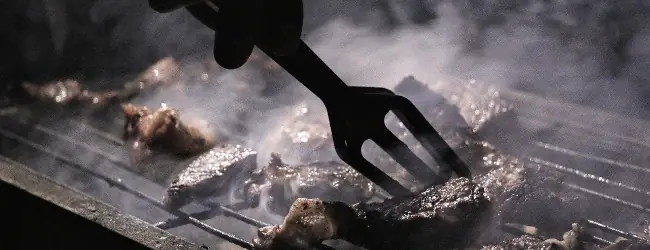In the previous article (this article), I mentioned the reason for getting depressed. Disappointment is necessary to keep our values. Today, I will explain a mental model that could allow us to reclaim our lives.
How to reclaim our values
Sometimes, we want to recover our values. Many others’ values, such as an inferiority complex, affect our minds negatively and drive us to compete that we don’t want. That exhausts us, especially if we have unique personalities, like empathy and creativity.
It never fulfills us as long as an inferiority complex drives us, no matter how patient we are, because we cannot satisfy our values. We have to follow our values and personalities to feel happiness.

In other words, the more unique our personalities are, the more we need to live differently.
How do our minds make decisions?
However, we often don’t know where to start solving our confusion about values because we cannot understand our minds. Although it belongs to each of us, we don’t understand how the mind works.
That prevents us from solving mental confusion and continues to exhaust us mentally.

In such a case, knowing how our minds make decisions could help us reclaim our values.
Today, I will explain a mental model that allows us to realize how we make judgments based on our values. That might enable us to reclaim our values by getting depressed.
The mental model for how to make decisions based on values
We make decisions based on our values. We have our values but also social values to follow social rules. We humans are a social species.
That is why we have our values and social values at the same time. It is inevitable. If we have unique personalities, our values often differ from social ones. That suffers us.

However, we may make different decisions depending on the situation.
Traveling is a typical example. When we travel a little farther away and feel great nature, we are free from social values. We let go of short-term worries, come to be honest with ourselves, and remember what we want to do in life. That allows us to make another decision based on our values. Perhaps you have experienced it many times.
Let’s see those processes with a mental model. This model might be wrong because it is my model. However, this could help us understand how our minds work.
The six-layer model of mental judgment
There is a mental model that balances our values with social ones. I call it ‘the six-layer model of mental judgment’ temporarily. It consists of six layers, as follows:
- (consciousness side) [1st layer] Social judgment: When we have to decide on something, we determine whether society values it. (If yes, we resolve to do it. If not, or we cannot do it anymore due to circumstances, we will judge in the next layer. To be the same afterward.)
- [2nd layer] Compensatory judgment to the outside: We determine whether we can reduce stress through compensatory behavior, such as distractions.
- [3rd layer] Compensatory judgment inward: We determine whether we can reduce the stress by changing our insides, such as persuading ourselves or imagining delusional ideals that will never come true.
- [4th layer] Negative self-judgment: We determine whether we can handle the stress by stopping doing things we don’t like. This process is based on our values.
- [5th layer] Positive self-judgment: We determine whether we can handle the stress by starting to do what we want. This process is based on our values.
- (subconsciousness side) [6th layer] Repressed judgment: Modify our implicit inner rules to reduce stress. This is the deepest area we can change.

When we have to decide something, we begin judging with our superficial consciousness. We judge from the 1st layer.
The process of judgment
This mental system provides efficient decisions because it eliminates the necessity of considering which to choose in the same situation.
For example, assume we are hungry now. We want to eat something. We judge how to resolve it from the 1st layer.
Judging socially (layer 1)
First, we determine whether it is socially acceptable to eat now. If it is okay, such as when we are alone in our room and can act freely, we decide to eat something.

On the other hand, sometimes we cannot solve that problem due to social reasons. For example, when we are in a business meeting, we cannot eat. Social values prevent us from eating. In other words, we cannot resolve the problem in the first layer.
Judging compensation (layers 2, 3)
If we cannot resolve it in the first layer, we get disappointed and move on to the next, the second layer: compensatory judgment to the outside. We try to distract the stress. We might try to drink coffee or water while dealing with business meetings.
If that doesn’t work or we are not feasible, we move to the third layer: compensatory judgment inward. After getting discouraged, we try to reduce the stress by convincing ourselves. We might try to persuade ourselves, “This patience will make my dinner tasty.” We might daydream, “Suppose there is a delicious steak here.”

Although they are imaginary and compensatory, they give us more patience. We try to conform to social values as well as possible.
Judging our values (layers 4, 5)
If we cannot solve the problem, we judge the fourth layer: negative self-judgment. We think of the current situation based on our values. That makes us realize our honest wants.
We first try to stop things we don’t like. We might remember that we have never loved our current jobs. We might notice that we have always wanted to stop this lifestyle.

If we are still not feasible or have nothing to stop, we go to the fifth layer: positive self-judgment. We think about what we want to do in our lives. We remember our values and try to realize them.
That allows us to modify our direction in life.
Judging implicit, inner rules (layer 6)
However, even that sometimes cannot resolve our problems. The inner rules that we have made for ourselves since childhood affect us. We call them repressed rules.
Although we are not usually aware of them, they are unconscious rules that restrict our decisions. ‘Don’t be selfish’ and ‘Must be patient’ are examples.

If we still cannot solve our problems, we can be conscious of the deepest subconsciousness, the sixth layer: repressed judgment. We will notice the inner rules that restrict us. At the same time, we will remember why we had it with the memory of the traumatic experiences in the past.
After noticing it, we can remove the rule. That frees us.
The efficiency of our mental system
This judging system gives us efficiency that avoids repeating the same decision.
That is why we try to maintain the current situation as long as we don’t get depressed. Our consciousness lies in the upper layer. That is the reason that we always think about social values.

Disappointment makes us aware of our deeper subconscious.
In other words, we cannot change our direction in life as long as we try to think positively. The positive direction always leads us to follow social values.
How to solve an inferiority complex
That mental model also tells us how to solve an inferiority complex.
We can reclaim our values by distancing ourselves from society. That diminishes the sticking to the upper layers and allows us to be aware of our values, including repressed rules.

That is the logic behind the phenomenon: when we travel and feel great nature, we will be honest with ourselves and remember what we want to do.
Conclusion
That is the mental model for processing judgment.
This model might allow us to resolve our mental problems.
Thank you for reading this article. I hope to see you in the next one.


